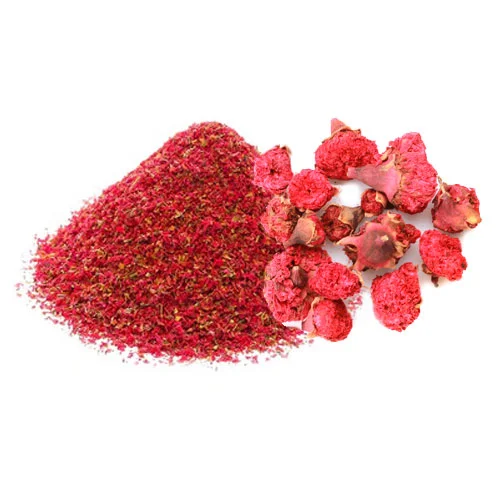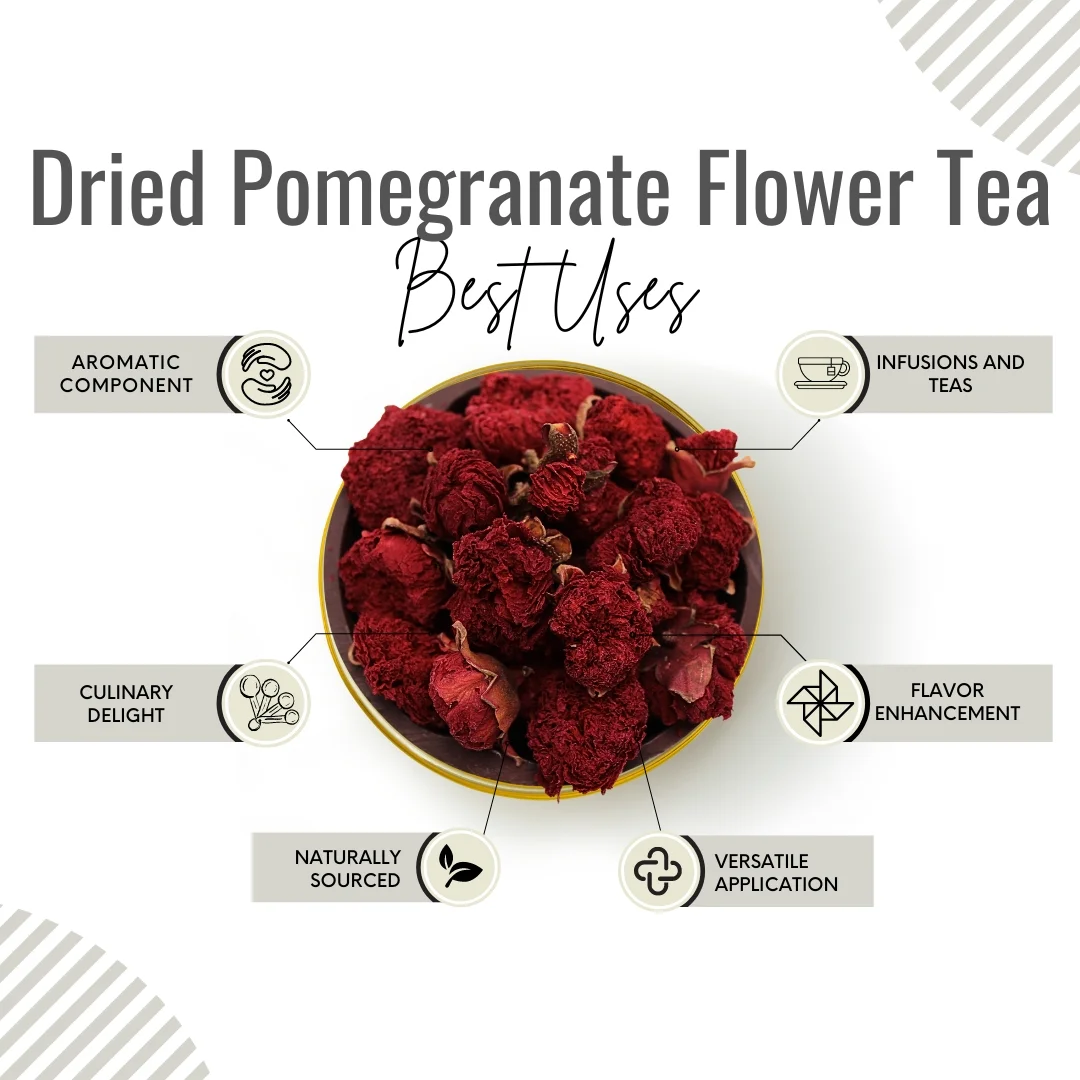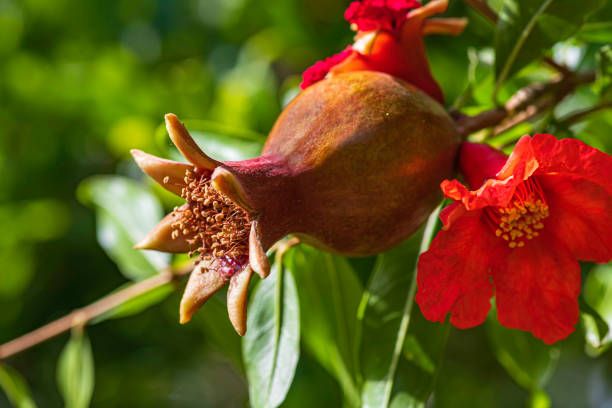INTRODUCTION
Pomegranates are vibrant, red fruits known for their jewel-like seeds, called arils, which are sweet, tart, and packed with nutrients. They are rich in antioxidants, vitamins (especially Vitamin C and K), and fiber. Pomegranates are often consumed fresh, as juice, or used in cooking, especially in Middle Eastern and Mediterranean cuisines. Their unique taste and health benefits have made them popular for centuries, and they also carry cultural and symbolic significance, often associated with fertility, abundance, and prosperity.

Forms
Pomegranate is found in following forms:
- Dry flower
- Flower tea
- Dry flower powder
- Dry peal tea
- Dry pomegranate seed
Health Benefits
Anti-inflammatory Effects
Pomegranate flowers contain compounds that help reduce inflammation in the body. Chronic inflammation is linked to various health issues, including arthritis, cardiovascular diseases, and certain cancers. The anti-inflammatory properties of pomegranate flowers can help mitigate these conditions by lowering inflammation markers and soothing affected tissues.
Antioxidant Protection
The flowers are rich in antioxidants, including flavonoids and polyphenols. These antioxidants neutralize free radicals—unstable molecules that can damage cells and contribute to aging and chronic diseases like cancer and heart disease. By reducing oxidative stress, pomegranate flowers help protect the body’s cells and tissues from damage.

Wound Healing
The astringent properties of pomegranate flowers are beneficial for wound healing. They help tighten and tone tissues, which can speed up the healing process. Additionally, their antimicrobial and anti-inflammatory effects contribute to reducing infection risks and promoting faster recovery.
Diabetes Management
Pomegranate flower extracts may assist in managing blood sugar levels and improving insulin sensitivity. Some studies suggest that these extracts can help lower fasting blood glucose levels and enhance insulin function, making them potentially useful for people with diabetes or those at risk of developing the condition.
Antimicrobial Properties
The flowers have natural antimicrobial properties that can help combat various pathogens, including bacteria and fungi. This can be useful in treating infections and supporting the immune system. The antimicrobial effects may also help in maintaining overall oral health and preventing infections in the digestive tract.
SIDE EFFECTS

Pomegranate flowers are generally considered safe for most people when used appropriately, but they can cause side effects in some cases. Potential side effects include allergic reactions, such as skin rashes or itching, particularly in those sensitive to pomegranates or related plants. High doses might also lead to gastrointestinal issues like nausea or diarrhea. It’s important to use pomegranate flowers under the guidance of a healthcare professional, especially if you have underlying health conditions or are taking other medications.




